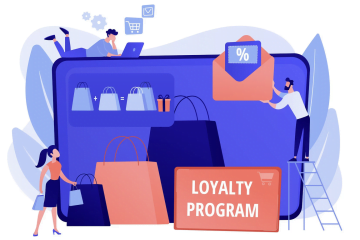
News publishers would have stronger rights to demand payment from digital giants such as Google and Facebook in exchange for using their content, under proposed European rules that are designed to shore up the collapsing revenues of traditional media companies.
The measures are part of a series of reforms that the European commission plans to put out to consultation in September. They are designed to strengthen the rights of those who create and invest in original content, from authors and musicians to record labels, broadcasters and publishers.
The commission has come under increasing pressure from publishers to level the playing field. Google and Facebook have attracted a ballooning share of online advertising money, while revenues for news publishers have slumped despite their expanding online readerships.
In draft proposals setting out its preferred options, the commission says: “The sustainability of publishing industries in the EU may be at stake, with the risk of further negative consequences on media pluralism, democratic debate and quality of information.”
The digital groups have a “strong bargaining position”, which “makes it difficult for publishers to negotiate with them on an equal footing”, according to a version of the draft seen by the Guardian.
Brussels is looking at giving news publishers the exclusive right to make their content available to the public, and to reproduce it for digital purposes.
This would mean that Google’s parent company, Alphabet, could face demands from publishers to pay to use extracts of their articles in services like Google News.
The protection, known as “neighbouring rights”, already exists for performers, record labels and broadcasters. The commission wants to extend it to the producers of news – publishers who produce largely text-based journalism.
According to the draft proposal, publishers would like the protection to last for 50 years. The commission is asking whether a shorter period of as little as between one and five years would be more appropriate, given the perishable nature of news.
A spokesman for the commission said: “Neighbouring rights are attributed to those that assist in making the original author’s work available to the public at large, for example performers, producers and broadcasters. The commission is considering whether to grant such rights to news publishers. It would recognise their role as investors in content and give them a stronger position when negotiating with other market players.”
However, there would be no obligation on publishers to make Google pay for using their content, and many may choose to continue making their journalism available at no cost in the hope of attracting more readers.
Previous attempts to force Google to pay for reproducing news stories have hit the buffers. When Spain introduced a mandatory levy, the search engine shut down its Spanish version of Google News. In Germany, after big drops in traffic, many publishers decided to stop charging the company.
The proposals are part of a drive to create a digital single market in Europe, first adopted in May 2015, which has the overall aim of reducing the differences between national copyright regimes and allowing for wider online access to films, television shows, sports broadcasts and music by users across the EU.
The working document also suggests imposing obligation on platforms like YouTube, Vimeo and Dailymotion, which host content uploaded by members of the public, to seek revenue-sharing agreements with rights holders.
These big brands have already negotiated multiple deals, but record labels in particular claim they are being short changed. Digital platforms say they are under no obligation to share revenues, and such deals are voluntary. And many lesser known distributors – including pirate sites – refuse to negotiate any compensation at all.
[Source:-The Guardian]


